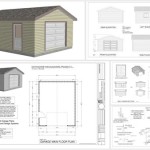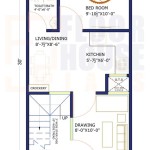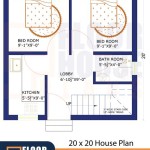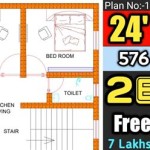Make Your Own Floor Plans
Creating your own house plans can be a rewarding experience, allowing you to design the home of your dreams and save money on architectural fees. However, it is important to approach this task with the right knowledge and tools to ensure that your plans are accurate, functional, and code-compliant. Here's a comprehensive guide to help you create your own floor plans:
Step 1: Determine Your Needs
Before you start drawing, take time to consider your lifestyle, needs, and wishes for your home. Think about the number of bedrooms and bathrooms you require, the size and layout of the kitchen, living room, and other rooms. Decide which features are essential to you, such as an open floor plan, large windows, or a home office.
Step 2: Research and Gather Inspiration
Look through magazines, websites, and books for ideas and inspiration. Visit open houses and talk to builders to learn about different floor plan designs. Consider the architectural style you prefer, such as traditional, modern, or Craftsman. This will help you develop a clear vision for your home.
Step 3: Choose a Floor Plan Software
There are several software programs available to help you design your floor plans. Some popular options include AutoCAD, SketchUp, and Sweet Home 3D. Choose a software that is easy to use, offers features you need, and fits your budget.
Step 4: Set Up Your Drawing
In your chosen software, create a new drawing and set the scale according to the size of your home. Use the program's tools to draw the exterior walls, interior walls, and other architectural features.
Step 5: Layout the Rooms
Start by placing the main rooms, such as the living room, kitchen, and bedrooms. Consider the size and shape of each room, as well as the location of windows and doors. Arrange the rooms in a way that creates a logical flow and allows for natural light.
Step 6: Add Details
Once the basic layout is complete, start adding details such as furniture, appliances, and fixtures. This will help you visualize the space and ensure that it meets your specific needs. Use layers in your drawing software to organize different elements, making it easier to make changes later on.
Step 7: Check for Code Compliance
It is crucial to ensure that your floor plans comply with local building codes. Check the codes for requirements related to room sizes, ceiling heights, window placement, and accessibility features. Consulting with a local building official or an architect can help you avoid costly mistakes.
Step 8: Get Feedback and Make Revisions
Share your floor plans with friends, family, or a professional for feedback. Listen to their suggestions and make revisions as necessary. This step can help you identify areas of improvement and create a more functional and aesthetically pleasing design.
Conclusion
Designing your own floor plans can be a challenging but rewarding undertaking. By following these steps and taking the necessary time and effort, you can create a home that meets your specific needs and reflects your unique style. Remember to research thoroughly, choose the right software, and consult with experts to ensure that your plans are accurate and code-compliant.

Make Your Own Floor Plans

Make Your Own Blueprint How To Draw Floor Plans

Make Your Own Blueprint How To Draw Floor Plans Drawing House Sketch Plan Blueprints

Impressive Make Your Own House Plans 1 Design Floor Free Home

Floor Plans Solution Conceptdraw Com

House Plans And Design

How To Create A Floor Plan Before You Move

How To Manually Draft A Basic Floor Plan 11 Steps Instructables

Impressive Make Your Own House Plans 1 Design Floor Free Home

Boxbrownie Com Using Floor Plans To Your Property








